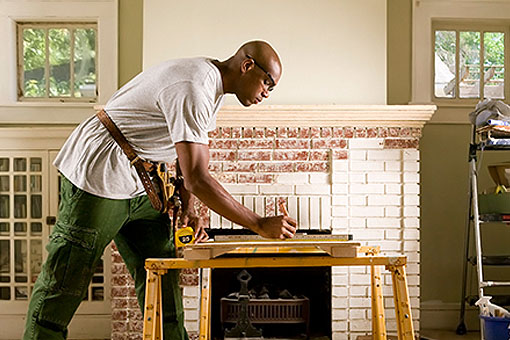How Rising Interest Rates Can Impact Your Homebuying Power
- Rising interest rates decrease homebuying power: As interest rates rise, monthly mortgage payments increase, reducing the amount of home you can afford. For example, a 1% increase in rates can add hundreds of dollars to your monthly payment for a $420,000 home.
- Understand rate-driven affordability shifts: A 0.62% drop in interest rates can price 2.8 million additional households into the market, while a 1% increase can significantly reduce purchasing power.
- Evaluate mortgage options carefully: Fixed-rate mortgages offer stability, while adjustable-rate mortgages provide short-term savings. With rates projected to hover between 6.7% and 7% in 2025, compare options to find the best fit for your financial situation.
- Plan ahead: Rising home prices (projected to increase by 4% in 2025) and rate volatility make it essential to monitor economic trends and plan for affordability challenges.
- Partner with a trusted bank: Work with a reliable financial institution to access tools like rate locks, affordability calculators, and expert guidance to navigate the changing market and achieve your homeownership goals.
Wondering how interest rates affect your homebuying power?

You’re not alone.
With rates rising to their highest point since 2008, many potential buyers are discovering their dream home now feels just out of reach. But higher rates don’t have to mean sidelining your homeownership goals.
Understanding how interest rates affect buying power can help you make smarter decisions, plan ahead, and still secure the right home for your budget.
In this article, we’ll show you how even small rate changes impact what you can afford — and give you the tools to navigate today’s market with confidence.
How do rising interest rates impact homebuying power?
In general terms, as interest rates go up, the amount of home you can afford goes down. This hit to homebuying power happens for several reasons:
- Higher interest rates generally translate into higher mortgage loan costs—meaning the amount you’ll have to pay in interest (and your monthly payment) will be higher.
- Rising interest rates tend to cool down the homebuying market, meaning fewer sellers will list their homes. Fewer buyers and sellers in the market means less inventory for you to choose from.
- Higher interest rates in combination with lower credit characteristics may make it more difficult for some people to qualify for a mortgage.
While there are several factors in play, the key thing to keep in mind is that higher interest rates typically do lower the amount of house you can afford.
Higher interest rates impact a bank’s ability to lend you the same amount of money they would if rates were lower. Further, higher interest rates mean that your monthly payment will go up to account for the increase in interest you’ll pay over the life of the loan.
Generally, these increases follow the 1/10 rule, which is a good way to estimate how much rising interest rates could impact your homebuying power.
Using the 1/10 rule to determine how much house you can afford
The 1/10 rule states that when interest rates go up by 1%, your buying power goes down by 10%. The reverse also holds true, as a 1% decrease in interest rates means you can purchase roughly 10% more house.
For example, say that you qualified for a $500,000 mortgage at an interest rate of 3%. Then, the interest rate rose to 4% overnight. How would this 1% increase affect your buying power?
Using the 1/10 rule, a 1% increase in the interest rate would translate to a 10% decrease in your buying power. This means that—all other things being equal—you’d only have $450,000 of purchasing power to buy a home at the new 4% interest rate.
To draw this example out into the real world, if you qualified for a $500,000 mortgage in 2021 when interest rates were 3%, then you would see a 30% reduction in your buying power if you chose to purchase a home at an interest rate of 6% in 2025. This would translate to a loss in buying power of around $150,000.
Put another way, if you could have afforded a $500,000 house at a 3% interest rate in 2021, the higher interest rates in 2025 mean that you would only be able to afford a house worth $350,000 at an interest rate of 6%.
Find out how much house you can afford
What happens to mortgages when rates go up?
Mortgages become more expensive when interest rates go up. This is because the interest rate on the mortgage goes up in relation to the interest rates set by the Federal Reserve.
The Federal Reserve is tasked with monitoring and adjusting the nation’s monetary policy. The Federal Reserve has several tools it can use to affect the broader economy. One of the strongest and most useful of these tools is its ability to adjust the interest rates on loans between the government and banks (and even the banks themselves).
When people talk about the Federal Reserve “raising interest rates,” they’re generally referring to when it increases the rates on loans between these financial institutions (the Federal Reserve to banks, banks to banks, etc.).
As the cost of transferring money between these institutions goes up, banks need to raise the interest rates on the mortgages they offer to their customers.
In real-world terms, this means that the interest rates for mortgages will often closely follow the interest rates the Federal Reserve sets for transactions between the government and banks, and even between the banks themselves.
Fixed-Rate vs. Adjustable-Rate Mortgages
The two most common types of mortgages are known as fixed-rate mortgages and adjustable-rate mortgages:
- Fixed-Rate Mortgage — A fixed-rate mortgage charges a rate that stays the same throughout the life of the loan. This interest rate is determined by several market factors and loan parameters.
- Adjustable-Rate Mortgage — An adjustable-rate mortgage charges a rate that adjusts based on the market after the initial fixed period. Often, the rates on these mortgages are lower than fixed-rate mortgages. When the Federal Reserve adjusts the interest rate on loans between banks, it can have a large impact on adjustable-rate mortgages
When you’re shopping for a mortgage to buy a new home, it’s wise compare the interest rates and annual percentage rate (APR) of various mortgage types to determine both the total cost of the mortgage and how much you’ll pay each month.
Rising interest rates will have different effects on each type of mortgage, so it’s important to compare the pros and cons of each as you build out a plan for buying a home.
Figuring out whether a fixed-rate or adjustable-rate mortgage is better for you can be complicated, especially when you throw rising interest rates into the mix. It’s wise to speak with your local banker to figure out your options and how best to move forward.
Practical Tips for Managing Rising Interest Rates
Rising interest rates can make homebuying more challenging, but with the right strategies, you can still achieve your goals. Here are some practical tips to help you manage rising interest rates:
Improve Your Credit Score
- Focus on paying down debts to reduce your credit utilization.
- Dispute any errors on your credit report to ensure accuracy.
- Even small improvements, such as moving from a score of 718 to 720, may place you in a higher credit tier and lower your interest rate.
Increase Your Down Payment
- A down payment of 20% or more can also eliminate private mortgage insurance (PMI), reducing your monthly costs.
- This strategy lowers your loan-to-value ratio (LTV), which may qualify you for better rates.
Lock in Interest Rates
- Consider locking in your mortgage rate to protect against future rate increases during the homebuying process.
- Rate locks typically last 30-60 days, but some lenders may charge fees for extensions if delays occur.
Explore Different Mortgage Options
- Fixed-rate mortgages provide stability, while adjustable-rate mortgages (ARMs) may offer lower initial rates.
- Discuss with your banker which mortgage loan type make sense and whether a fixed-rate or adjustable-rate mortgage is more suitable for your financial situation.
Budget Accordingly
- Adjust your financial plan to accommodate potential increases in monthly payments due to rising interest rates.
- Use mortgage calculators to model rate changes and prioritize building an emergency savings fund.
Consult Financial Experts
- Financial advisors can help you explore refinancing opportunities, loan restructuring, or down payment assistance programs tailored to your credit profile.
- Schedule an appointment with a banker to discuss your options and create a plan that works for you.
By implementing these tips, you can better manage the challenges of rising interest rates and stay on track toward achieving your homebuying goals.
Planning for the Future and Your Family’s Needs
While higher interest rates present new challenges, it's still a strategic time to invest in a home. By partnering with a trusted, community-focused bank like Associated Bank, you can navigate the homebuying process confidently and find a mortgage solution tailored to your needs.
Associated Bank’s local expertise and personalized service can help you explore options such as adjustable-rate mortgages (ARMs), down payment assistance programs, and rate-lock tools to mitigate the impact of rising rates. Additionally, our team is here to guide you through strategies like improving your credit score, comparing loan terms, and understanding how to maximize your buying power in today’s market.
Despite the current rate environment, investing in a home remains a valuable opportunity to build long-term equity and achieve your financial goals. Let Associated Bank help you turn these challenges into opportunities and make your homebuying dream a reality.
Want help with finding the best mortgage that works for your unique situation? Schedule an appointment to meet with a dedicated expert at an Associated Bank near you. We’re here to help you achieve all your financial goals, meet rising interest rates head-on and make your homebuying dream a reality.





